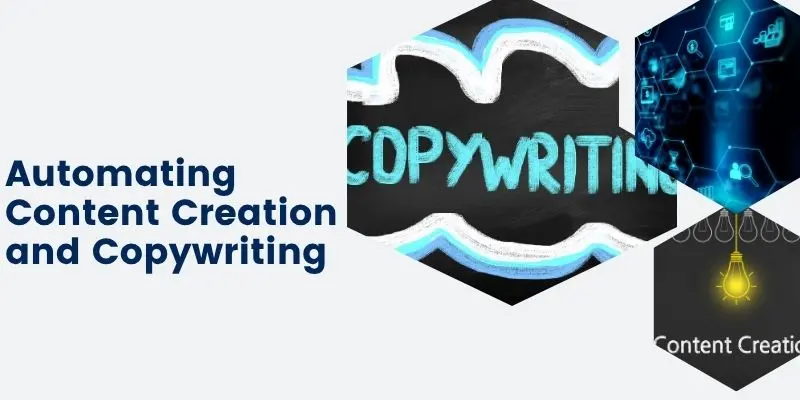How to Integrate AI into WordPress (With OpenAI & ChatGPT Tools Explained)
Published: 16 Jul 2025
AI is no longer just a buzzword—it’s transforming how websites are built and managed. For WordPress users, integrating AI can save time, boost performance, and enhance user experience. From content creation and chatbots to SEO optimization, AI tools are reshaping every aspect of your site. In this guide, you’ll discover practical, effective ways to implement AI in WordPress—ready to use today. Let’s dive into how to integrate AI into WordPress and make your site smarter.
1. Why Use AI in WordPress?
Artificial Intelligence is quietly becoming one of the most powerful tools for WordPress users. Whether you’re a blogger, developer, or business owner, AI brings unmatched efficiency, automation, and personalization to your website.

For content creators, AI can generate blog posts, suggest titles, or even rewrite existing content – saving hours of work. Developers can rely on AI to review code, debug issues, or build smarter site features with less manual effort. Businesses benefit through AI chatbots, dynamic product recommendations, and smart SEO tools that drive better results with less guesswork.
AI also helps personalize the user experience by analyzing visitor behavior and adjusting content accordingly. It can translate content for global audiences, protect your site from spam, and optimize everything from images to load speed.
2. Setting Up AI in WordPress: What to Know First
Before jumping into AI tools for WordPress, it’s important to understand the basics. Proper setup ensures the tools work effectively and align with your goals.
1. Define Your Use Case
Start by asking: What do I want AI to do on my site?
Are you aiming to automate content creation, improve SEO, handle customer queries, or optimize images? Knowing your goal helps you choose the right tools and avoid unnecessary features.
2. Check Technical Requirements
Most AI tools come as WordPress plugins or external platforms with integrations. While they are beginner-friendly, some may require:
- PHP 7.4 or higher
- Updated WordPress installation
- A hosting plan with sufficient resources (for AI image generation or chatbot processing)
Make sure your theme and other plugins are compatible to avoid performance issues.
3. Choose Trusted AI Plugins
Popular plugins include:
- AI Engine for content generation
- Bertha.ai for marketing copy
- RankMath for AI SEO suggestions
- ChatBot.com for customer service
- Quttera or CleanTalk for spam and security
Always pick well-reviewed plugins from trusted developers to ensure updates, support, and security.
4. Test Before Going Live
Use a staging site to test how the AI tool works with your existing setup. Some plugins can be resource-heavy or conflict with others. Testing helps avoid glitches that could affect your live site.
5. Mind the Cost
Many AI tools offer free versions, but advanced features usually require a subscription. Compare pricing plans and look at what features you truly need before committing.
3. Automating Content Creation and Copywriting
One of the most popular uses of AI in WordPress is content generation.

With the help of AI-powered tools, you can quickly create blog posts, product descriptions, landing page copy, and even content outlines – saving hours of manual writing. Nowadays, there are top AI tools for content creation available in the market, which are making content creation easier.
1. AI Blog Writing
AI tools like Bertha.ai, Jasper, or AI Engine integrate directly into your WordPress editor. They can:
- Generate full blog posts from a simple prompt
- Rewrite or expand existing content
- Suggest engaging introductions and conclusions
This is especially useful for bloggers and marketers who want to maintain a steady publishing schedule.
2. Product Descriptions Made Easy
If you run a WooCommerce store, AI can help generate product descriptions that are clear, optimized, and tailored to your audience. You can input product features, and the AI will turn them into polished descriptions in seconds.
3. Catchy Headlines and Meta Tags
Tools like Rank Math SEO use AI to suggest compelling headlines, meta titles, and descriptions that improve click-through rates. These plugins analyze your content and recommend copy that fits both search engines and human readers.
4. Content Outlines and Ideas
Stuck with writer’s block? AI can generate full outlines for articles, helping you plan structure and flow. You can also ask for topic ideas based on trending keywords or niche interests.
5. Multilingual Content Creation
Some AI tools can create content in multiple languages, helping you reach a global audience without needing a translator.
With AI, content creation becomes faster, smarter, and more scalable. Whether you’re publishing blog posts or managing product listings, AI can help you maintain consistency and quality – without the creative burnout.
4. AI-Powered Image Creation and Optimization
Visuals are key to an engaging WordPress site – but creating and managing images can be time-consuming. AI simplifies this process by generating graphics, enhancing existing visuals, and optimizing image performance automatically.
1. Create Unique Images and Graphics
AI image generation tools like DALL·E, Midjourney, or integrated plugins like AI Image Generator for WordPress allow you to create custom visuals directly from text prompts. Whether it’s blog illustrations, product images, or featured banners, you can generate high-quality graphics without needing design skills.
2. Design Logos in Seconds
Need a logo? AI-powered logo generators like Looka or LogoMakr use your brand details (name, color scheme, niche) to deliver instant logo concepts. These tools integrate easily with WordPress or can be downloaded and uploaded to your site.
3. Auto-Generate Alt Text for Accessibility and SEO
Plugins like Automatic Alternative Text or SEOPress AI scan your images and automatically create relevant alt tags. This improves:
- Accessibility for screen readers
- Image SEO for search engine visibility
- Content compliance with best practices
4. Compress Images Without Losing Quality
AI-based image optimization plugins such as ShortPixel, Imagify, and TinyPNG automatically compress and convert images to modern formats (like WebP). Benefits include:
- Faster page loading
- Reduced bandwidth usage
- Better mobile performance
5. AI Background Removal and Enhancement
Need to remove a background or enhance image quality? Tools like Remove.bg or Cleanup.pictures use AI to edit images quickly and accurately – great for product photos or thumbnails.
AI takes the guesswork out of visual content. It not only speeds up creation but also ensures your images load fast, look great, and support both SEO and accessibility goals. Perfect visuals are now just a click away.
5. Enhancing SEO with AI Tools
Search engine optimization (SEO) is essential for getting traffic to your WordPress site – but it can be complex and time-consuming.

AI tools make SEO easier, smarter, and more effective by automating key tasks and offering data-driven suggestions.
1. Smarter Keyword Research
AI-driven SEO plugins like Rank Math, SurferSEO, or All in One SEO help you find high-impact keywords based on search trends, competition, and your site’s content. These tools can suggest:
- Primary and secondary keywords
- Related keyword clusters
- Long-tail keyword opportunities
This ensures your content targets terms your audience is searching for.
2. Auto-Generate Meta Titles and Descriptions
Writing optimized meta tags for every post or product page can be tedious. AI plugins can:
- Automatically generate relevant meta titles and descriptions
- Ensure ideal length for search engine display
- Include keywords naturally for better ranking
Some tools also preview how your pages will appear in Google search results.
3. Real-Time SEO Scoring and Suggestions
AI tools provide instant feedback while you’re writing. For example:
- Rank Math scores your content for SEO readiness
- Yoast SEO offers readability and keyword placement tips
- SEOPress AI suggests improvements for headers, image tags, and internal linking
These real-time suggestions help you optimize as you go, rather than after publishing.
4. AI-Powered Content Optimization
Advanced AI platforms like SurferSEO and MarketMuse analyze top-performing content in your niche. They then recommend word count, subtopics, keyword density, and structure to help your content compete.
5. Automated SEO Audits
Some AI tools run full site audits, checking for:
- Broken links
- Missing alt tags
- Duplicate content
- Slow-loading pages
- Schema markup issues
They not only detect problems but also suggest how to fix them.
With AI, SEO becomes more efficient and less overwhelming.
From keyword research to on-page optimization, AI tools guide you through each step, making it easier to rank higher and drive more organic traffic to your WordPress site.
6. Multilingual Support and Content Translation
Expanding your WordPress site to a global audience is a powerful way to grow your reach -but translating content manually can be slow and expensive. That’s where AI-powered translation tools come in. They offer fast, accurate, and context-aware translations that maintain the meaning and tone of your original content.
1. AI Translation vs. Traditional Translation
Unlike basic translation plugins that rely on word-for-word substitution, AI translation tools understand context. This means they can:
- Preserve tone and intent
- Handle idioms and local expressions more accurately
- Provide more natural-sounding translations
This is crucial for creating content that feels native to international visitors.
2. Best AI Translation Tools for WordPress
Several tools integrate directly into WordPress and use advanced machine learning for translation:
- Weglot – Automatically detects and translates content into 100+ languages. Supports SEO-friendly URLs and metadata.
- TranslatePress – Offers AI-powered translation (via DeepL or Google Translate) with a live visual editor.
- ConveyThis – Fast setup with automatic translation and multilingual SEO optimization.
- GTranslate – Uses Google’s AI to instantly translate your entire site, including dynamic content.
3. Multilingual SEO Support
AI translation plugins don’t just translate text—they also:
- Create language-specific URLs (e.g., /fr/, /es/)
- Translate meta titles and descriptions
- Submit alternate language versions to search engines
This helps you rank in search results across different countries and languages.
4. Real-Time and On-Demand Translation
Many AI tools support:
- Real-time translation as you publish new content
- Manual edits if you want to fine-tune the AI’s output
- Auto-update translations when original content changes
This saves significant time compared to hiring human translators for every update.
5. Enhanced User Experience
AI translation tools often include language switchers for users, auto-detect browser language preferences, and provide seamless switching without page reloads—improving usability and engagement for non-English speakers.
AI-powered multilingual support makes going global simple and efficient.
With just a few clicks, you can reach a wider audience, improve user trust, and boost your visibility in international search engines – all without sacrificing content quality or user experience.
7. Adding AI Chatbots and Voice Assistants
Engaging your visitors in real time is key to improving user experience, increasing conversions, and reducing bounce rates. AI-powered chatbots and voice assistants make this possible – 24/7, without human intervention.
1. What Are AI Chatbots and Voice Assistants?
- AI chatbots simulate real human conversations. They answer questions, guide users, and provide instant support based on your site content or predefined workflows.
- Voice assistants allow users to search or interact with your site using spoken commands – perfect for mobile users or accessibility.
These tools work together to create an interactive, personalized browsing experience.
2. Benefits of Using AI Chatbots in WordPress
- 24/7 availability: Chatbots can assist users at any time, even when your team is offline.
- Instant response: They reduce wait times by offering immediate answers to FAQs, product details, or support queries.
- Lead generation: Chatbots can collect visitor data, recommend products, or schedule appointments.
- Reduced support workload: Fewer tickets for your human support team, freeing up time for complex issues.
3. Popular AI Chatbot Plugins for WordPress
- Tidio – A beginner-friendly chatbot with live chat integration and AI automation.
- WP-Chatbot by MobileMonkey – Great for Facebook Messenger and multi-platform use.
- ChatBot.com – Offers a drag-and-drop chatbot builder and integration with WooCommerce, CRMs, and more.
- Landbot – Highly customizable for conversational forms, feedback, and sales funnels.
Most of these tools include analytics, so you can track user behavior and optimize chatbot responses over time.
4. Implementing Voice Search on WordPress
Adding voice search improves site accessibility and UX, especially on mobile devices. Plugins and tools like:
- Voice Search Plugin
- Google Voice API integrations
allow users to speak queries instead of typing, making navigation faster and more inclusive.
5. Personalization Through AI Conversations
Modern chatbots use natural language processing (NLP) to understand user intent. Some even learn from past conversations and personalize future interactions. This leads to better engagement, increased time on site, and higher conversion rates.
Adding AI chatbots and voice features is a powerful upgrade for any WordPress site.
They not only enhance customer support but also modernize the user experience – keeping your visitors engaged, informed, and more likely to convert.
8. AI for Security and Spam Protection
As WordPress websites grow in popularity, they also become frequent targets for spam and cyber threats. AI-powered security solutions offer a proactive and intelligent way to protect your site – before problems occur.
1. Fighting Spam with AI
Spam comments can clutter your posts, hurt user experience, and even damage SEO. Traditional filters often miss sophisticated spam, but AI tools analyze behavior, language patterns, and IP data to block:
- Bot-generated comments
- Link spam
- Repetitive, low-quality posts
Popular AI anti-spam plugins include:
- Akismet – Uses machine learning to catch spam automatically. Built by the team behind WordPress.
- CleanTalk – Offers AI-based spam filtering across comments, contact forms, and registrations.
- Antispam Bee – Lightweight and GDPR-friendly, ideal for European sites.
These tools learn over time, improving accuracy without the need for manual moderation.
2. AI Threat Detection and Prevention
AI doesn’t just detect obvious threats – it identifies subtle, emerging patterns of malicious activity. This includes:
- Brute-force login attempts
- Suspicious file changes
- Unusual login locations or user behavior
- Code injection or plugin tampering
Top plugins for AI-driven threat detection:
- Wordfence Security – Includes real-time firewall protection and AI-powered malware scanning.
- MalCare – Uses AI to scan for complex threats and isolate infected files without affecting your site.
- iThemes Security Pro – Monitors site activity and automatically blocks IPs that trigger known attack patterns.
3. Behavioral Analysis for Real-Time Protection
AI systems monitor how users interact with your site. If behavior looks abnormal – like accessing restricted areas or repeated failed logins – they can take action instantly:
- Blocking IP addresses
- Forcing CAPTCHA verification
- Alerting admins with email or push notifications
4. Automated Backups and Recovery
Some security tools use AI to schedule backups intelligently and restore sites to safe versions if a threat is detected. This minimizes downtime and data loss.
5. Fewer False Positives, Smarter Defense
Unlike rigid, rule-based systems, AI continuously learns and adapts to new types of attacks. This reduces false positives and improves protection against zero-day vulnerabilities.
AI takes WordPress security to the next level.
By combining real-time monitoring, spam filtering, and intelligent threat detection, it creates a safer environment for both you and your visitors – without the constant need for manual oversight.
9. Writing and Auditing Custom Code with AI
For developers working on WordPress themes, plugins, or custom functionality, AI offers powerful tools to write, review, and troubleshoot code efficiently. Whether you’re building from scratch or refining existing functions, AI can drastically cut down development time and improve code quality.
1. Code Generation Made Easy
AI tools like GitHub Copilot, CodeWP, or WPCode can generate PHP, JavaScript, HTML, and CSS snippets tailored for WordPress. You simply describe what you want in plain language, and the AI suggests clean, ready-to-use code.
Use cases include:
- Custom shortcodes
- WooCommerce modifications
- Theme customization
- API integration scripts
- Conditional logic for plugins or forms
2. Smart Code Suggestions
AI can autocomplete functions, correct syntax errors, and suggest better code structures as you type – especially when integrated into code editors like VS Code. This reduces the need to search documentation repeatedly and helps even novice developers code faster.
3. Debugging and Troubleshooting
Stuck on a WordPress error or bug? AI tools can:
- Analyze your error messages or logs
- Suggest the most likely cause
- Recommend specific fixes or functions
AI debugging assistants like Codeium, Replit AI, or browser-based tools can pinpoint issues faster than manual trial and error.
4. Security and Code Quality Audits
Some advanced AI tools evaluate your code for:
- Vulnerabilities (like SQL injection, XSS)
- Deprecated WordPress functions
- Poor coding practices
- Efficiency and performance issues
Tools like Codacy, DeepCode, or WPScan CLI with AI integration help maintain secure and scalable codebases.
5. Version Control and Documentation
AI can also generate:
- Inline code comments
- Function documentation
- Git commit messages
This ensures cleaner handovers and easier team collaboration – especially useful in larger WordPress development projects.
AI isn’t just for content creators – it’s a powerful ally for developers, too.
Whether you’re writing new features or fixing bugs, AI coding tools streamline the process, reduce errors, and boost productivity so you can build better WordPress solutions, faster.
10. Challenges, Risks, and Best Practices
AI offers powerful capabilities in WordPress, but it’s not without its limitations. Understanding the risks and knowing how to manage them is key to using AI effectively and responsibly for long-term success.
1. Content Accuracy and Originality
AI-generated content can sometimes be factually incorrect or too generic. Relying solely on AI without human review may lead to:
- Misinformation
- Duplicate content
- Low-quality writing that affects SEO
Best Practice: Always proofread and refine AI-generated content. Add your expertise, data, and personality to make it authentic and trustworthy.
2. Overdependence on Automation
AI tools can automate many tasks, but complete dependence may reduce your site’s uniqueness or lead to missed opportunities for creativity and strategy.
Best Practice: Use AI as an assistant, not a replacement. Combine automation with strategic human input.
3. Plugin Compatibility and Site Performance
Some AI-powered plugins are resource-heavy and may:
- Slow down your website
- Conflict with other plugins or themes
- Break under certain WordPress updates
Best Practice: Test AI plugins in a staging environment. Monitor site speed and functionality after integration.
4. Security and Data Privacy
AI tools, especially chatbots and analytics, may collect and store user data. If misconfigured, this can raise compliance issues with privacy laws like GDPR or CCPA.
Best Practice: Use reputable tools that offer privacy controls and clear data handling policies. Always inform users when collecting personal data.
5. Cost of Premium Tools
While many AI plugins offer free versions, advanced features often come with a recurring fee. Over time, the costs can add up – especially for small businesses or personal sites.
Best Practice: Start with free plans to evaluate tools. Scale up based on ROI and need.
6. Ethical Concerns
AI-generated content or designs may unintentionally plagiarize or replicate other creators’ work. Voice and chatbot features can also give users a false sense of human interaction.
Best Practice: Maintain transparency about AI use on your site. Use plagiarism checkers and adhere to ethical content guidelines.
Stay updated. The AI landscape evolves rapidly. Regularly review your tools, stay informed about new features or risks, and adapt your strategy to keep your WordPress site secure, engaging, and ahead of the
Conclusion:
Integrating AI into WordPress isn’t just a trend—it’s a game-changer for website owners. From automating content creation and enhancing SEO to improving user engagement with smart chatbots, AI tools make your site faster, smarter, and more efficient. By following the strategies in this guide, you can confidently implement AI solutions tailored to your needs. Don’t get left behind—learn how to integrate AI into WordPress today and transform your website into a cutting-edge, high-performing platform.
FAQs: How to Integrate AI into WordPress
You can integrate AI into WordPress using plugins like AI Engine, Rank Math, or chatbots like Tidio – no coding required.
Use plugins like AI Engine or custom APIs to connect OpenAI’s GPT models for content generation, chatbots, and more.
Yes, AI can be added to any website using APIs, third-party platforms, or CMS-specific plugins like those for WordPress.
Popular options include Rank Math (SEO), Bertha.ai (copywriting), AI Engine (GPT integration), and Tidio (chatbots).
No, most AI features can be added through easy-to-use plugins – though developers can build custom AI integrations with code.
Yes, AI tools can generate blog content, outlines, and headlines directly within the WordPress editor.
AI helps with keyword research, meta descriptions, internal linking, and SEO audits for better search performance.
Yes, some plugins use tools like DALL·E or Stable Diffusion to generate custom images from text prompts.
Trusted AI plugins are safe, but always choose well-reviewed tools and monitor data privacy and performance.
AI content can rank well if it’s accurate, valuable, and edited to meet Google’s quality guidelines.

- Be Respectful
- Stay Relevant
- Stay Positive
- True Feedback
- Encourage Discussion
- Avoid Spamming
- No Fake News
- Don't Copy-Paste
- No Personal Attacks

- Be Respectful
- Stay Relevant
- Stay Positive
- True Feedback
- Encourage Discussion
- Avoid Spamming
- No Fake News
- Don't Copy-Paste
- No Personal Attacks





